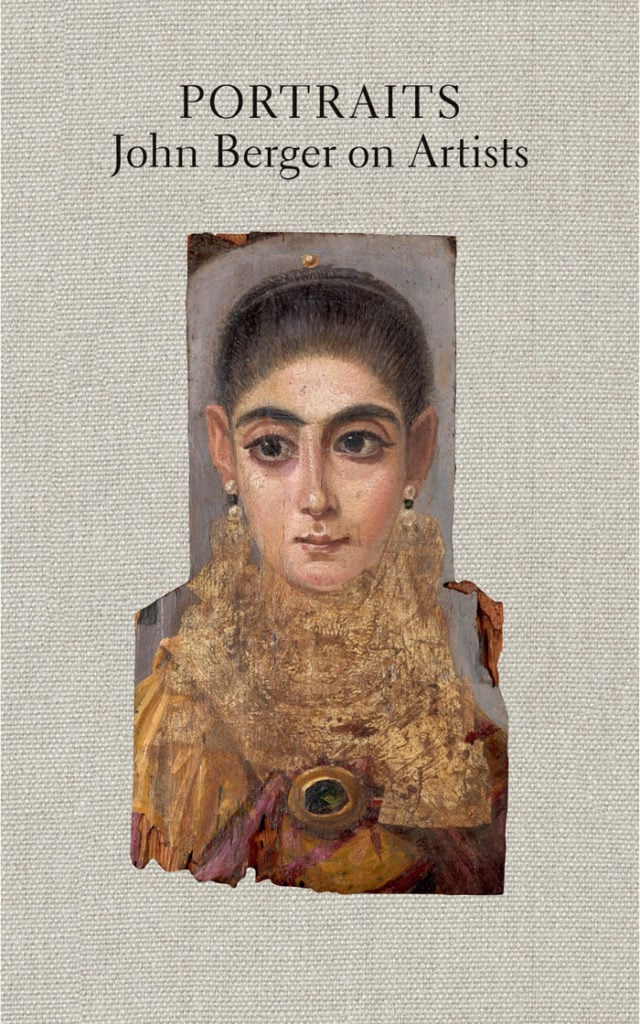People
John Berger, Acclaimed British Art Critic and Novelist, Dies at 90
His popular book and series ‘Ways of Seeing’ made him a household name.
His popular book and series ‘Ways of Seeing’ made him a household name.
Lorena Muñoz-Alonso

The British art critic, novelist, poet, and painter John Berger died on January 2, at his home in the Paris suburb of Antony. He was 90 years old.
My father #JohnBerger died today. Neither scared nor reckless, but focused, curious & eager to find out the rest of the story. A true writer
The best of Artnet News in your inbox.
— Jacob Berger (@jacobberger) January 3, 2017
Despite a long and prolific career full of highlights, Berger is most famous for his 1972 book and BBC TV series Ways of Seeing, in which he proposed a new, more critical way of looking at historical European painting, encouraging viewers to challenge the ideologies underpinning some of the masterpieces of the Western art cannon, while pointing to the impact that the development of photography and the rise of the art market have had in our understanding of it.
Born in Hackney, London, in 1926, Berger attended the St. Edward’s boarding school in Oxford, and then went on to study at London’s Chelsea School of Art. His first steps in the art world were as a painter, and he exhibited his work in a number of London galleries in the late 1940s.
Soon, though, writing beckoned, and in 1952, he landed a post as art critic at the New Statesman, a weekly review of politics and literature with a left-of-center political position that suited Berger’s Marxist stance. He would hold the post for a decade, gaining recognition for his essays and art reviews, in which he tended to champion underdogs and take down “untouchable” figures like Jackson Pollock.
His first novel, A Painter of Our Time, was published in 1958, followed by Permanent Red in 1960, a collection of essays from his time at the New Statesman.

John Berger cuts open Botticelli’s Mars and Venus in Ways of Seeing (1972). Still from YouTube.
In 1972, Berger had a most prolific and significant year. Not only did he release Ways of Seeing, but also published his experimental novel G, for which he won the prestigious Booker Prize (he donated half of his cash award to the Black Panther Party in Britain).
Despite being considered a quintessential British writer, Berger moved away from England in 1962 (to Geneva) and spent most of his adult life in Quincy, a small bucolic town in the French Alps where actress Tilda Swinton, the artist Christopher Roth, film producer Colin MacCabe, and filmmaker Bartek Dziadosz traveled to in the last five years to film the documentary The Seasons in Quincy: Four Portraits of John Berger, which premiered at the last Berlin Film Festival and can now be seen as a beautiful eulogy.
Berger never ceased being productive, and over the course of his lifetime he wrote almost 40 books of art criticism and history, four plays, five screenplays, four volumes of poetry, and nine novels, including the poignant To the Wedding (1995), which tells the story of a young female character dying of AIDS.

Portraits: John Berger on Artists, edited by Tom Overton. Courtesy Verso, 2015.
His last book, published in 2015, is a collection of short essays written throughout six decades of his life and covering art from several centuries, from Renaissance masters like Piero della Francesca to modern and contemporary artists like Pollock and Mark Rothko.
Towards the end of his life, after the death of his third wife Beverly Bancroft in 2013, Berger left Quincy for the suburbs of Paris.
“I feel so grateful to have reached 90—it is such an age—and to my friends for wanting to celebrate, but what I’ve told them all is that what we ought to do on the day is be silent. My birthday should just be a day like any other,” he told the Guardian on the eve of his 90th birthday, on November 5.